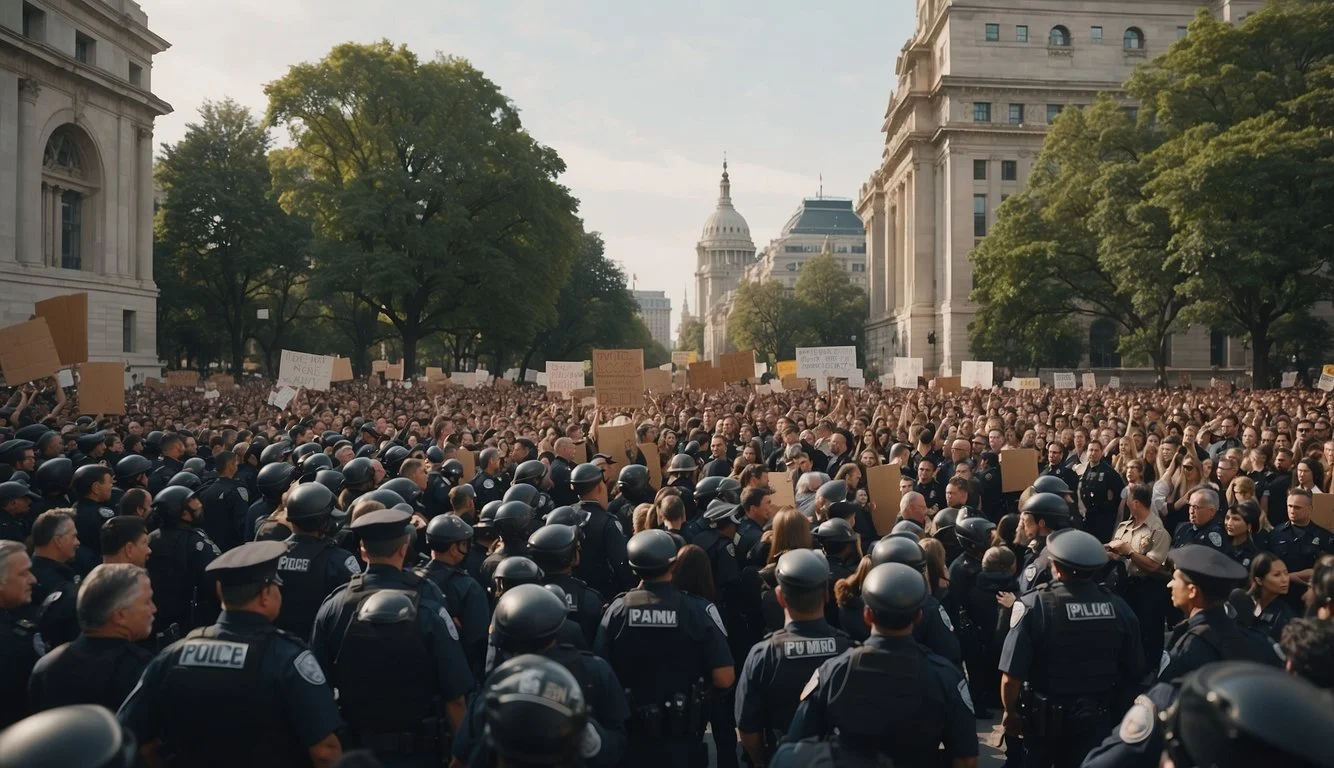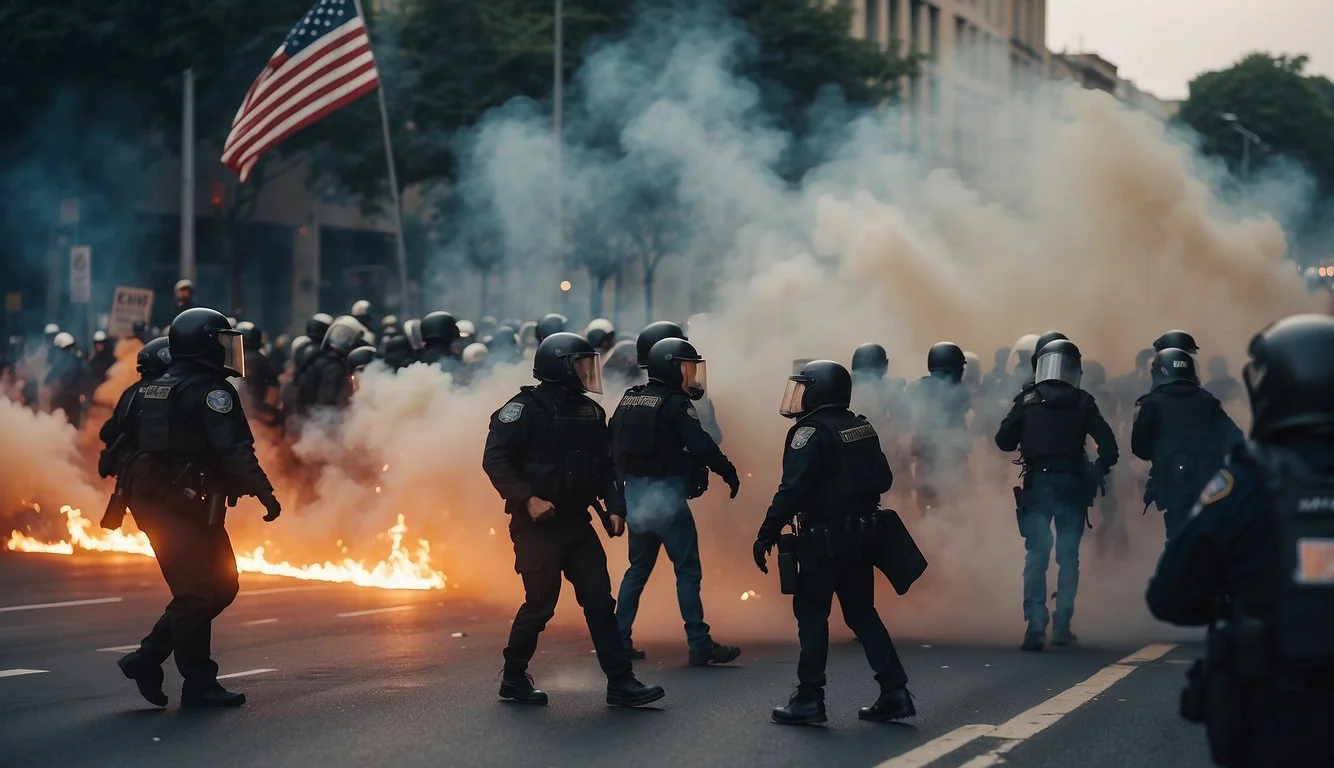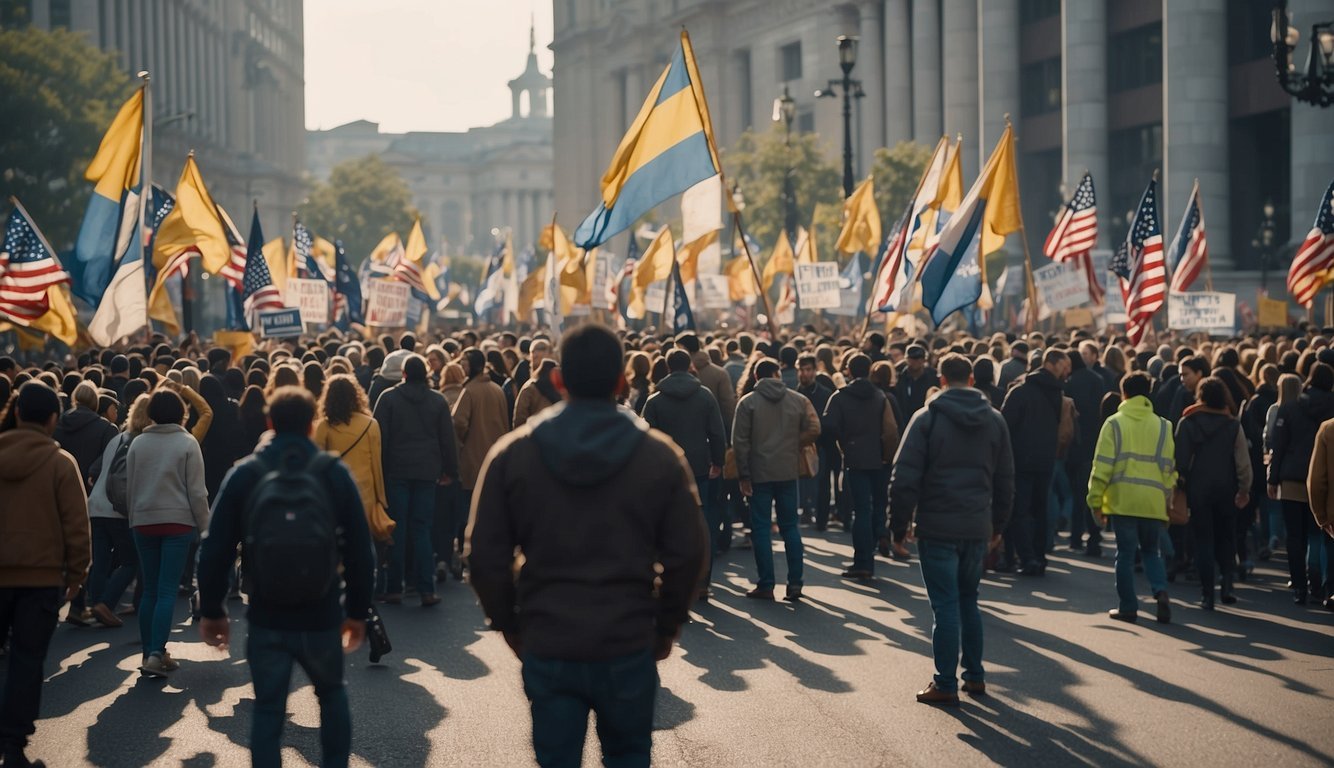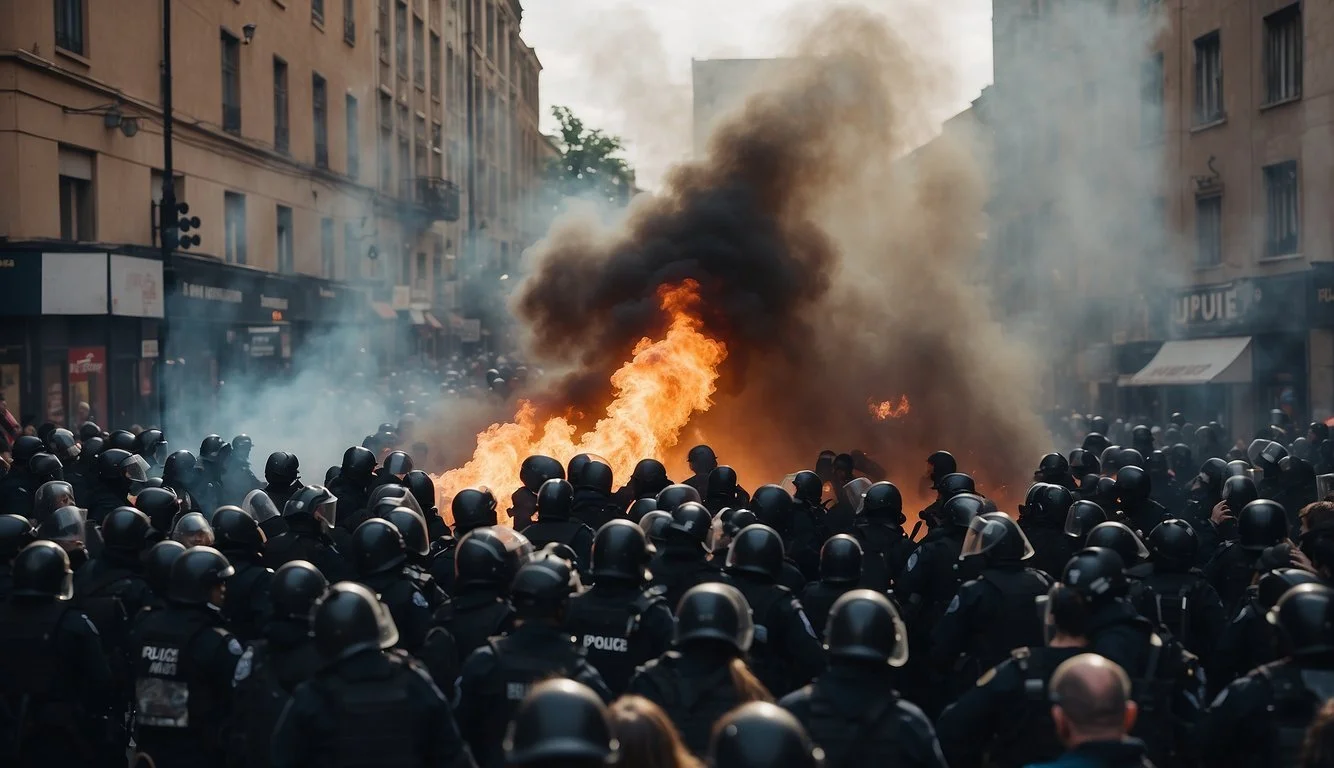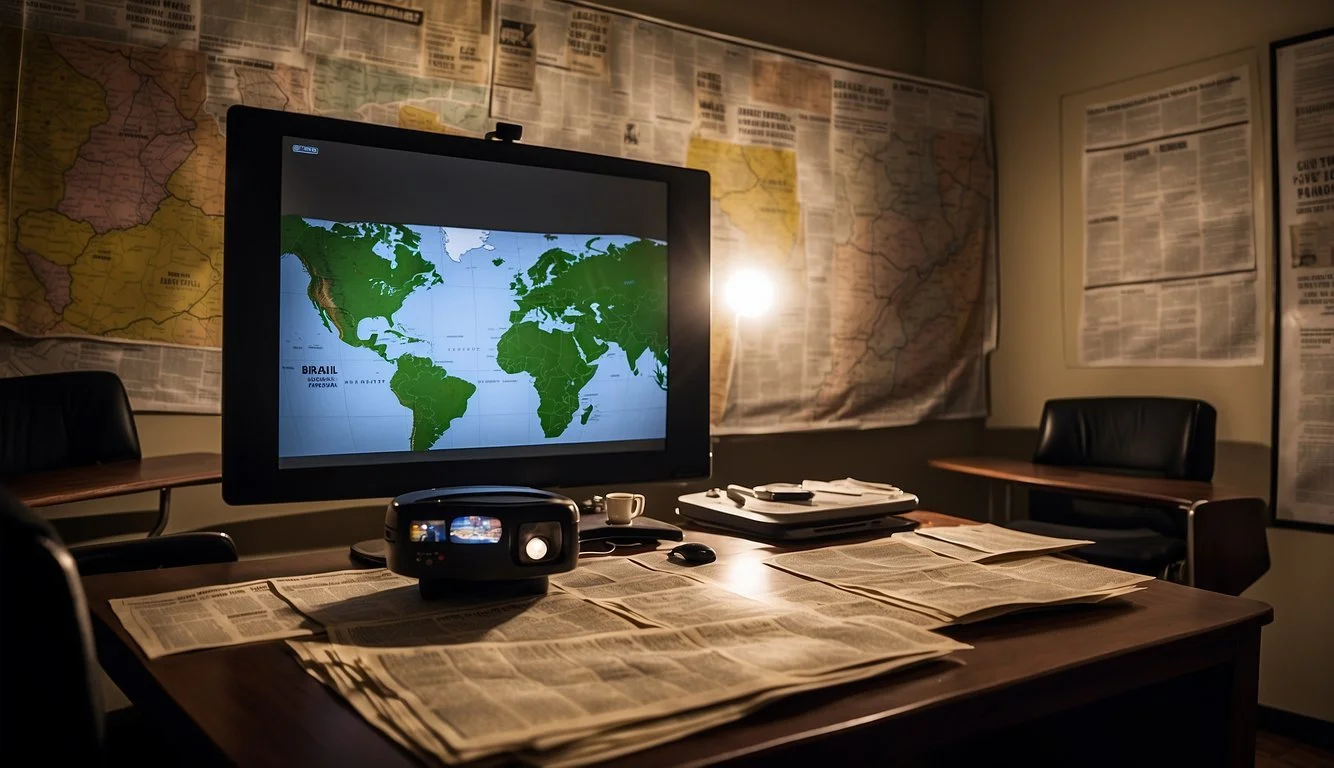Documentary Review: The Edge of Democracy (2019)
A Riveting Political Journey
Petra Costa's 2019 documentary, The Edge of Democracy, combines personal memoir with political reportage to create a compelling narrative about Brazil's tumultuous political landscape. This film provides a profound look at the intersection of personal experiences and broader political events, making it a must-watch for those interested in understanding Brazil's recent history. Costa's approach allows her to capture the emotional and societal implications of the political turmoil in Brazil.
Through captivating storytelling and meticulous documentation, Costa highlights the complexities and nuances of Brazil's democracy. The documentary's ability to maintain a balanced perspective while deeply engaging its audience stands out, turning an intricate political crisis into a relatable human story. By intertwining her family's history with the country's political narrative, Costa effectively brings a unique emotional depth to the film.
The Edge of Democracy not only offers an in-depth chronicle of political events but also serves as a critical reflection on democracy's fragility. The film underscores the precariousness of democratic institutions and the ease with which they can be undermined. This makes it an essential viewing for anyone interested in the dynamics of political power and societal change.
Overview of 'The Edge of Democracy'
The Edge of Democracy, directed by Petra Costa, is a documentary that provides a deep dive into the political landscape of Brazil. Utilizing both personal anecdotes and extensive reportage, Costa creates a narrative that intertwines her own family's history with the larger story of Brazil's political turmoil.
The documentary highlights the rise and fall of Brazil's presidents, particularly focusing on Luiz Inácio Lula da Silva (Lula) and Dilma Rousseff. It explores significant events such as Lula's imprisonment and Rousseff's impeachment, revealing the political machinations and corruption allegations that fueled these crises.
Costa uses intimate footage and candid interviews to paint a vivid picture of Brazil's democratic decline. The film illustrates how the corruption and manipulation within the political system have affected the nation's governance.
Running for 1 hour and 53 minutes, The Edge of Democracy offers a compelling portrayal of Brazil's recent history. The documentary stands out due to its raw emotional delivery and powerful storytelling, resonating deeply with viewers interested in global politics.
The poignant narrative is augmented by professional cinematography and a gripping soundtrack, making the complex political landscape accessible to a broader audience. Costa's personal connection to the subject matter adds a layer of authenticity and urgency.
In summary, The Edge of Democracy is not just a documentary; it’s a personal journey through the complexities of Brazilian politics, offering a nuanced perspective on the country's struggle with democracy.
Film's Background Information
"The Edge of Democracy" delves into the intricate interplay between personal narrative and political turmoil. The film, directed by Petra Costa, provides an in-depth look at Brazil's political landscape during a time of crisis.
Director's Profile: Petra Costa
Petra Costa, a Brazilian filmmaker, was born on July 8, 1983. Known for her ability to weave personal narratives with broader societal themes, Costa has received critical recognition for her work. Her previous documentaries, such as "Elena," have been noted for their intimate storytelling. Costa's background in anthropology and theater greatly informs her cinematic approach, blending critical observation with personal insight.
Historical Context
"The Edge of Democracy" examines a transformative period in Brazil, focusing on events from the impeachment of President Dilma Rousseff to the imprisonment of former President Luiz Inácio Lula da Silva. This era was marked by political upheaval, corruption scandals, and public protests. The Workers' Party, once under Lula's leadership, faced significant challenges, including accusations of graft and widespread disillusionment among the populace. These events are crucial for understanding Brazil's current political climate.
Production Details
"The Edge of Democracy" was released in 2019 and distributed by Netflix. The documentary runs for 1 hour 53 minutes. Costa employs a mix of archival footage, personal videos, and interviews to construct the narrative. The project was a collaborative effort, featuring contributions from several prominent Brazilian journalists and activists. Shot primarily in Brazil, the documentary captures the physical and emotional landscape of the country's political scene.
Themes and Narratives
"The Edge of Democracy" dissects the fragile balance between personal experiences and national upheavals in Brazil, focusing on the interplay of political shift and personal trajectories.
Democracy and Politics
The documentary navigates the tumultuous landscape of Brazilian politics, capturing pivotal moments like the impeachment of President Dilma Rousseff and the arrest of former President Luiz Inácio Lula da Silva. Costa uses her narration to explore how democracy can be both resilient and vulnerable. She delves into the complexities of political power, corruption, and the judicial system’s role in shaping national governance.
Footage from protests and political rallies punctuates the narrative, emphasizing the public's passionate engagement in democratic processes. Important political events are depicted with striking detail, underscoring Brazil’s struggle with its democratic ideals.
Personal and National Identity
Costa intertwines her personal story with Brazil's political saga, creating a nuanced narrative that examines how individual and national identities are interconnected. Her family's connections to both military influence and democratic activism provide a unique lens through which she views the unfolding crises.
The documentary reflects on the emotional impact of political instability on personal identities and family legacies. Costa’s introspective narration brings intimacy to broader political events, making the viewer consider how macro-political changes resonate on a personal level.
Socio-political Analysis
Through a critical examination of Brazil’s socio-political landscape, Costa offers an incisive analysis of class divides, social movements, and economic disparities. The film scrutinizes the motivations behind political actions and the societal consequences of corruption and power struggles.
By interviewing key political figures and everyday citizens, the documentary presents a multifaceted view of Brazil’s socio-political dynamics. Visual contrasts between affluent and impoverished areas highlight the enduring inequalities that fuel political discontent and activism. Costa’s analytical approach provides a comprehensive understanding of the factors driving Brazil’s current political climate.
Critical Analysis
Petra Costa's direction and narrative techniques create an impactful viewing experience that delves deeply into Brazil's political turmoil. Costa's personal connection and innovative storytelling approach captivate and inform the audience effectively.
Directorial Approach
Petra Costa’s direction in The Edge of Democracy is marked by a deeply personal and introspective style. Costa blends her own family history with Brazil’s political landscape, offering a unique perspective that adds emotional depth. Her proximity to political events and figures grants the documentary an intimate, almost visceral feel.
Costa's use of archival footage is noteworthy. She juxtaposes historical moments with contemporary events to highlight recurring themes of power and corruption. Her narrative voice, both as a commentator and participant, lends authenticity to the portrayal of Brazil’s democratic struggles.
Her directorial choices emphasize the gravity of the political crisis with precision. By focusing on personal experiences, Costa transforms abstract political concepts into relatable, human stories. This method ensures that viewers can connect emotionally with the material, making the documentary both informative and poignant.
Narrative Techniques
Costa employs a mesh of personal memoir and political reportage to weave a compelling narrative in The Edge of Democracy. The intertwining of her familial history with the broader political context offers a multifaceted view of Brazil’s democracy. This dual narrative structure allows different perspectives to coexist, enriching the viewer's understanding.
Her use of voiceover is particularly effective. Costa’s reflective narration guides the audience through complex political events, providing context and commentary. This technique not only aids comprehension but also maintains a coherent storyline amid intricate political developments.
Visual storytelling is another key element. Costa integrates symbolic imagery with documentary footage, creating a visual metaphor for Brazil’s political landscape. This approach engages viewers on both an intellectual and emotional level.
By blending these narrative techniques, Costa crafts a documentary that is both educational and engaging, encouraging viewers to reflect on the broader implications of Brazil’s political dynamics.
Reception and Impact
Released on Netflix, The Edge of Democracy has garnered extensive attention from critics, audiences, and political commentators. It delves into Petra Costa's unique intertwining of personal experiences and Brazil's political turbulence.
Critical Reception
The Edge of Democracy was acclaimed by critics for its compelling narrative and insightful perspective on Brazil's political crisis. Roger Ebert's site highlighted Costa’s melancholic yet captivating narration, praising her ability to avoid a sluggish tone despite heavy subject matter. NPR commended Costa’s documentary style, noting the seamless blend of personal memoir and reportage. Critics from various platforms recognized the film's ability to capture the slow erosion of democracy in an engaging manner, contributing to its numerous positive reviews.
Audience Response
Audiences found the film both educational and emotionally stirring. Many appreciated Costa's dual focus on intimate personal history and broader political events, which added depth to the viewing experience. Viewer discussions often centered around empathy for Costa’s personal losses and outrage at the political betrayals depicted. The film sparked widespread conversation on social media, leading to a broader discourse on Brazil's democratic state and inspiring many users to seek further information.
Influence on Political Discourse
The film significantly impacted political discussions both in Brazil and internationally. By showcasing the intricate and often opaque processes of political maneuvering, The Edge of Democracy provided a visual narrative to the complexities faced by Brazil's democracy. Political analysts and bloggers used the film as a reference point to discuss the nuances of democratic erosion and systemic corruption. Its release also coincided with a period of heightened political awareness, giving the documentary a notable place in contemporary political dialogue.
Cinematic Elements
"The Edge of Democracy" leverages its cinematic techniques to enhance the documentary's narrative on Brazilian political turmoil. Key components such as cinematography, editing, and sound design create a compelling viewer experience.
Cinematography
The cinematography in "The Edge of Democracy" is striking and evocative. Petra Costa employs a variety of shots to capture the intensity of political moments and the raw emotions of individuals involved. Wide shots of Brasilia’s modernist architecture contrast with close-ups of protesters, creating a visual dichotomy that underscores the tension in Brazil. The use of natural lighting in personal interviews adds an intimate feel, making the viewer feel connected to the subjects’ inner worlds.
Editing
Editing plays a crucial role in stitching together the personal and political narratives of the film. The documentary seamlessly weaves archival footage with contemporary scenes, maintaining a coherent storyline. Transitions are smooth, effectively moving the audience through different timelines and events. The pacing is meticulously controlled, avoiding the pitfalls of sluggishness, which keeps the viewer engaged from start to finish. Costa's choice to intersect personal memories with national events elevates the storytelling, making the political crisis feel deeply personal and urgent.
Sound and Music
Sound design and musical score significantly enhance the emotional resonance of the documentary. The ambient sounds of protests and political rallies are layered intricately with the film’s music, creating an immersive audio environment. The melancholy yet hopeful music heightens the impact of pivotal moments, guiding the audience through the film’s emotional peaks and troughs. Sound also plays a role in building tension, with strategic silences amplifying the weight of certain scenes.
Comparative Discussion
"The Edge of Democracy" by Petra Costa provides a gripping look at Brazil's recent political turbulence. It stands shoulder-to-shoulder with other significant documentary works while also presenting stark contrasts to fictional political dramas.
Similar Documentary Works
Documentaries like "The Edge of Democracy" often aim to provide a truthful, in-depth exploration of political events. Films such as "The Act of Killing" by Joshua Oppenheimer and "13th" by Ava DuVernay serve as important comparisons. These documentaries also blend personal stories with broader historical contexts, creating powerful narratives that resonate on both an individual and societal level.
"The Act of Killing" investigates the Indonesian mass killings of 1965-66 through the eyes of former death squad leaders. Similarly, "13th" addresses the systemic racial inequalities in the United States prison system. These documentaries, like Costa’s work, make a significant impact due to their exploration of deeply entrenched societal issues and historical injustices.
Contrast with Fictional Political Dramas
Fictional political dramas, such as "House of Cards" or "The West Wing," often exaggerate or simplify real-life political complexity for entertainment purposes. While engaging, these dramas rarely capture the nuanced reality of political events and the personal ramifications experienced by key figures.
"The Edge of Democracy" sets itself apart by using real footage and interviews to present an unembellished view of Brazil's political scenario. Unlike dramatized shows, Costa's documentary intimately portrays the human side of political figures and the very real consequences of corruption and power struggles. By focusing on actual events and emotions, it offers a powerful contrast to the sometimes glamorized and overly dramatic nature of fictional portrayals.
Concluding Thoughts
Petra Costa's documentary, The Edge of Democracy, offers a poignant and insightful examination of Brazil's political landscape. Through her personal lens, Costa navigates the tumultuous period of political upheaval with an objective yet empathetic approach.
The film intertwines personal memoir with political reportage, illustrating the stark contrasts between hope and disillusionment. Her reflective narration adds depth to the recounting, bridging the gap between individual experiences and collective realities.
Key elements highlighted in the documentary include:
The intricate play of political powers
Manipulation of public perception
The erosion of democratic principles
Costa's ability to weave her family's story with national events provides a unique perspective, making the political deeply personal and relatable. This dual narrative enriches the documentary, allowing viewers to connect on multiple levels.
The use of archival footage and interviews enhances the authenticity, offering insights directly from those involved. The film's pacing keeps the audience engaged, balancing historical context with current events.
In summary, The Edge of Democracy stands out as a critical examination of democracy under threat. Costa's meticulous storytelling and comprehensive approach make it a significant contribution to political documentaries.

